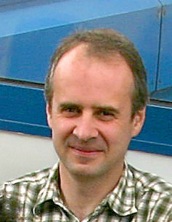

Eric Reiter, PhD, HDR

Group leader of the MAG team
Coordinator of the INSIGHT project
UMR 6175 INRA-CNRS-Université de Tours-Haras Nationaux.
37380 Nouzilly, France.
Phone: +33 2 47 42 77 83
Fax: +33 2 47 42 77 43


